Stories of China's 'Special Generation'
Updated: 2015-02-20 12:12
By May Zhou in Houston(China Daily USA)
|
||||||||
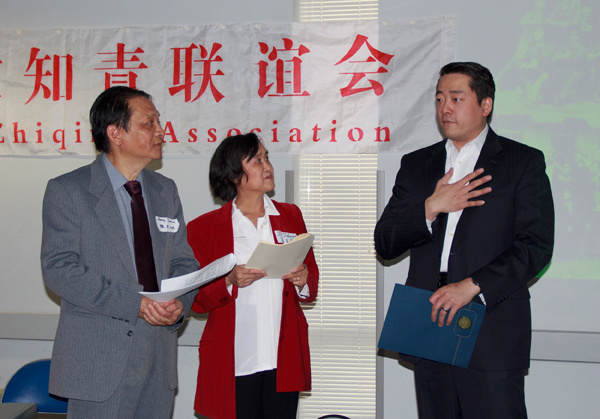 |
|
Texas State Representative Gene Wu (right) congratulates Zhang Tianrun (left) and Ji Jianghuan on the publication of their book Zhiqing: Stories from China's Special Generation at a reception in Houston. May Zhou / China Daily |
They live in Houston, and their professions range from university professor to lawyer, engineer, scientist and business owner, and they are bound by one unforgettable experience: during China's Cultural Revolution, they left school and heeded Mao's call for China's zhiqing (educated youth) to go to the poor provinces and distant borders and work with the local people in villages or on military farms and construction teams.
Now, their experiences are retold in a book entitled Zhiqing: Stories from China's Special Generation.
"We have spent over a year working on this book and now we are so happy to hold it in our hands," said Ji Jianghuang, a professor at Sam Houston State University and one of the co-authors. "This book is for the people of our generation and for people who want to know about our generation."
Ji said that there have been a total of 20 million zhiqing, including most of today's top leaders in China, including President Xi Jinping and Premier Li Keqiang.
There are more than 1,000 zhiqing living and working in Houston alone. "Our tales are filled with tears, small human joys, and sorrows," Ji said. "We survived the hardships and came out of it a stronger and more resilient generation. Our generation can be counted as a special generation in China's history."
The book, published by Texas Review Press with endorsements from people such as Andrew Nathan, a well-known expert on China at Columbia University, and Tani Barlow, Rice University professor and director of Chao Center for Asian Studies, tells 13 people's experiences from the Great Northern Wilderness and the Xishuangbanna South Border to Anhui province and Hainan Island.
"By recalling the hard trials and small triumphs of those distant days when they were young, the zhiqing featured here give us insight into the crucible that shaped their generation - the same generation that rules China today," wrote Nathan.
The personal stories encompass a wide range of experiences: Kang Xuepei earned the Advanced Zhiqing Award through sweat and tears in Anhui; and Qin Yang learned how to plough rice fields with water-buffalo and catch snakes in Sichuan.
Xu Zhenkang married a fellow zhiqing at a military farm in the Great Northern Wilderness and he recalls the night his daughter was born and how he could not master the skill of slaughtering a pig with one thrust no matter how hard he tried.
Shen Yi tells the story of how he protected his sister from a dog attack. Ji Chunquan gives a vivid description of land leeches in Yunnan. Zhang Tianrun tells a near-tragic story of forbidden love.
Ji Jianghuang recalls how she first worked as a laborer and later became an elementary school teacher, earning work points, no salary. Zeng Jianjun tells how she lost her hearing in a northern blizzard.
Qin Yang, co-author and the initiator of the book, said that the project started in 2012 when members of the Houston Zhiqing Association were invited by a local Chinese TV station to share their stories on the air. People were touched by the stories and thought they should put it into a book in English.
"So we started to talk about the possibility of a book," Qin said. "But you know how it is. Our association is more for socializing, friendship, partying and having fun. We gathered at someone's house and the book talk turned into to party talk. Nothing happened. Eventually we got serious and we had meetings at an office without our children and spouses around."
Allen Nunley, an engineer married to a zhiqing, read the book before it was published.
"The elements of these anecdotes - work, sorrow, humor, marriage and death - make this is an absorbing read which I found difficult to put down," he said. "They wrote of their lives mostly from the decade 1966-1976, but you can see from their biographies a snapshot of what they are like forty years later.
"I originally read this edition because I know four of the contributors, but I read all of it because the history was so fascinating and it just pulled me in," Nunley said.
Nunley gave eight copies to friends and family and got good reviews all round. The book has been put on the reading list of local book clubs.
Texas State Representative Gene Wu called himself a son of zhiqing: "My parents would tell me a little bit of that period of their life but not very much. Now that I am reading this book, it's good for my soul to learn what happened during my parents' time."
Chinese Consul Li Qiangmin said that he worked in the countryside for four years after high school, and "this is why I fully understand what it means to be a zhiqing. The stories reflect the lessons and hard work of the Chinese people. Although living in a very hard situation, the zhiqing believed that 'we are sent down but we will not let it down'. They never let down their dreams, nor their responsibility to their society and their country."
"I strongly recommend this book to anyone who has a strong interest in China and its recent history. I am sure this book will promote the understanding of our American friends about China," said Li.
Hilary Qin, a high school student and daughter of Qin Yang, said the book made her realize how lucky she is.
"I grew up with my parents, but this book makes me realize how little I knew of people I grew up with," she said. "They went through a lot of hardship but the hardest part was to be separated from their family."
mayzhou@chinadailyusa.com
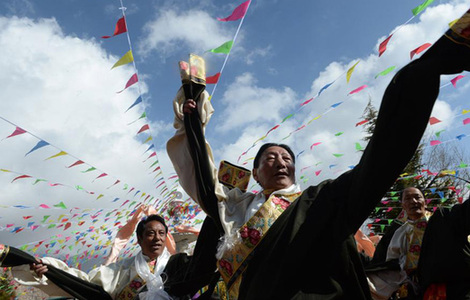
 Tibetans rejoice at twin New Year celebration
Tibetans rejoice at twin New Year celebration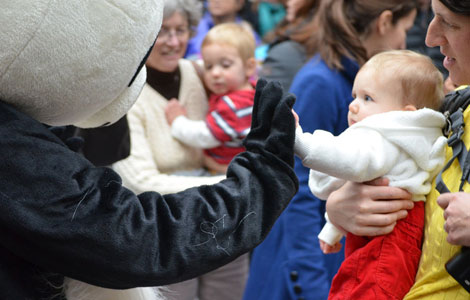
 Across America over the week (from Feb 13 to 19)
Across America over the week (from Feb 13 to 19)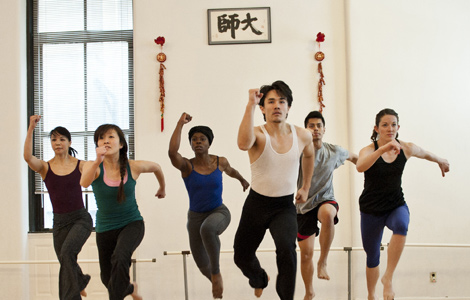
 Chinese in the South remembered
Chinese in the South remembered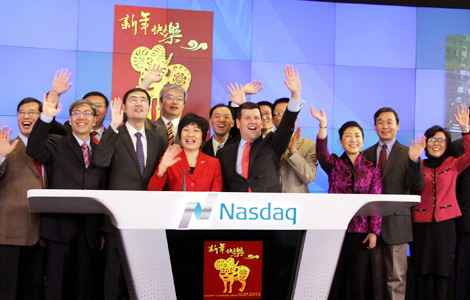
 Ringing in Chinese New Year on the Nasdaq
Ringing in Chinese New Year on the Nasdaq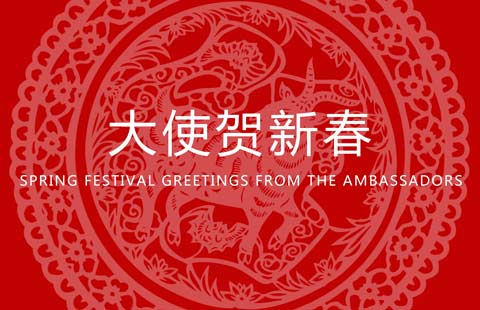
 Spring Festival greetings from the ambassadors
Spring Festival greetings from the ambassadors
 Las Vegas lights up for Lunar New Year
Las Vegas lights up for Lunar New Year
 Spring Festival fireworks in New York City
Spring Festival fireworks in New York City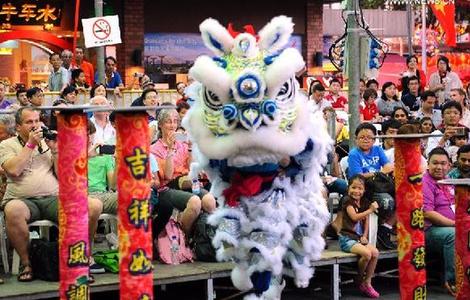
 Going abroad for Lunar New Year
Going abroad for Lunar New Year
Most Viewed
Editor's Picks

|

|

|

|

|

|
Today's Top News
Chinese students, faculty to study at Missouri university
Phillips Academy Andover to deepen China ties
Chinese in the South remembered
California port chief upbeat on agreement to end dock strike
NBA China CEO sees the sport proliferate
China tilts to Kabul with US pullout
No letup seen for business travel
Chinese visitors set to celebrate New Year worldwide
US Weekly

|

|








